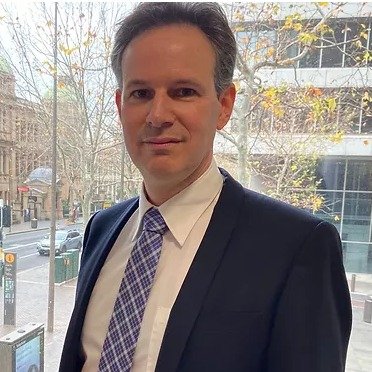Best Estate Planning Lawyers in Sydney
Share your needs with us, get contacted by law firms.
Free. Takes 2 min.
List of the best lawyers in Sydney, Australia
About Estate Planning Law in Sydney, Australia
Estate planning in Sydney, Australia, involves making arrangements for the management and disposal of an individual's estate after their death. It encompasses the preparation of legal documents such as wills, trusts, powers of attorney, and guardianships. By planning your estate, you ensure your assets are distributed according to your wishes, minimize potential taxes, and make provisions for your family's future. Sydney's legal landscape offers a comprehensive framework for individuals to manage their estate planning needs effectively.
Why You May Need a Lawyer
Engaging a lawyer for estate planning can be crucial in a variety of situations. Firstly, if your estate is complex, involving multiple properties, business interests, or significant investments, a lawyer can help simplify asset distribution. Secondly, if you have dependents with special needs, professional legal advice ensures precise planning for their long-term care. Additionally, changes in family circumstances, such as divorce or blended families, call for updated estate plans to reflect your current wishes. Lastly, understanding and abiding by local laws can be challenging, making a lawyer's guidance invaluable to avoid legal pitfalls.
Local Laws Overview
Estate planning in Sydney is governed by various laws and regulations. The Succession Act 2006 is a primary piece of legislation, covering the validity of wills, distribution of estates without a will, and the rights of beneficiaries. The probate process in New South Wales (NSW) validates a will, and without a valid will, intestacy laws dictate asset distribution, potentially against the deceased's wishes. Trusts are another important aspect, allowing flexibility in asset management and providing tax advantages. Additionally, NSW law allows for contesting a will, under certain conditions, by eligible persons seeking adequate provision from the estate.
Frequently Asked Questions
What is a will, and why do I need one?
A will is a legal document outlining your wishes for asset distribution after death. It helps ensure your assets are distributed according to your preferences and can prevent family disputes.
Can I change my will after it's created?
Yes, you can change or update your will at any time to reflect life changes such as marriage, divorce, or the birth of a child.
What happens if I die without a will in Sydney?
If you die without a valid will, you are considered intestate, and your estate will be distributed according to NSW's intestacy laws, which may not align with your wishes.
What is a power of attorney, and do I need one?
A power of attorney is a legal document allowing someone to make decisions on your behalf if you become incapacitated. It's advisable for estate planning to manage your affairs when you are unable to.
How can trusts be used in estate planning?
Trusts can manage assets effectively, providing control over distribution, protecting beneficiaries, and potentially offering tax advantages.
Can I contest a will in Sydney?
Yes, eligible persons such as close family members can contest a will if they believe they haven't been adequately provided for. Legal advice is recommended in such cases.
How does the probate process work in NSW?
Probate is the legal process of validating a will. The executor applies for probate to distribute the estate according to the will. It's required to legally manage and execute the deceased's affairs.
How often should I review my estate plan?
Review your estate plan every few years or after significant life events, such as marriage, divorce, the birth of a child, or changes in financial circumstances.
What tax implications are involved in estate planning?
While there is no inheritance tax in Australia, capital gains tax and other tax implications may arise from the transfer of assets. Professional advice can help manage these effectively.
What is an executor, and whom should I choose?
An executor is a person named in your will to manage your estate's administration. Choose someone trustworthy, organized, and willing to take on the responsibility.
Additional Resources
For further assistance, consider reaching out to the NSW Trustee & Guardian, a government body offering will preparation and estate management services. Legal Aid NSW provides resources and advice for those in need of legal assistance. Moreover, the Law Society of NSW can help connect you with qualified estate planning lawyers. Professional organizations such as the Financial Planning Association of Australia (FPA) can also offer valuable guidance on integrating estate planning into financial management.
Next Steps
If you require legal assistance with estate planning, begin by consulting a lawyer specializing in this field. They can provide tailored advice suited to your specific needs. Gather all necessary documents, such as asset lists and existing wills, before your initial consultation to streamline the process. Consider attending estate planning seminars or workshops to broaden your understanding. Lastly, be proactive in discussing your plans with family to ensure clarity and prevent future disputes.
Lawzana helps you find the best lawyers and law firms in Sydney through a curated and pre-screened list of qualified legal professionals. Our platform offers rankings and detailed profiles of attorneys and law firms, allowing you to compare based on practice areas, including Estate Planning, experience, and client feedback.
Each profile includes a description of the firm's areas of practice, client reviews, team members and partners, year of establishment, spoken languages, office locations, contact information, social media presence, and any published articles or resources. Most firms on our platform speak English and are experienced in both local and international legal matters.
Get a quote from top-rated law firms in Sydney, Australia — quickly, securely, and without unnecessary hassle.
Disclaimer:
The information provided on this page is for general informational purposes only and does not constitute legal advice. While we strive to ensure the accuracy and relevance of the content, legal information may change over time, and interpretations of the law can vary. You should always consult with a qualified legal professional for advice specific to your situation.
We disclaim all liability for actions taken or not taken based on the content of this page. If you believe any information is incorrect or outdated, please contact us, and we will review and update it where appropriate.
















